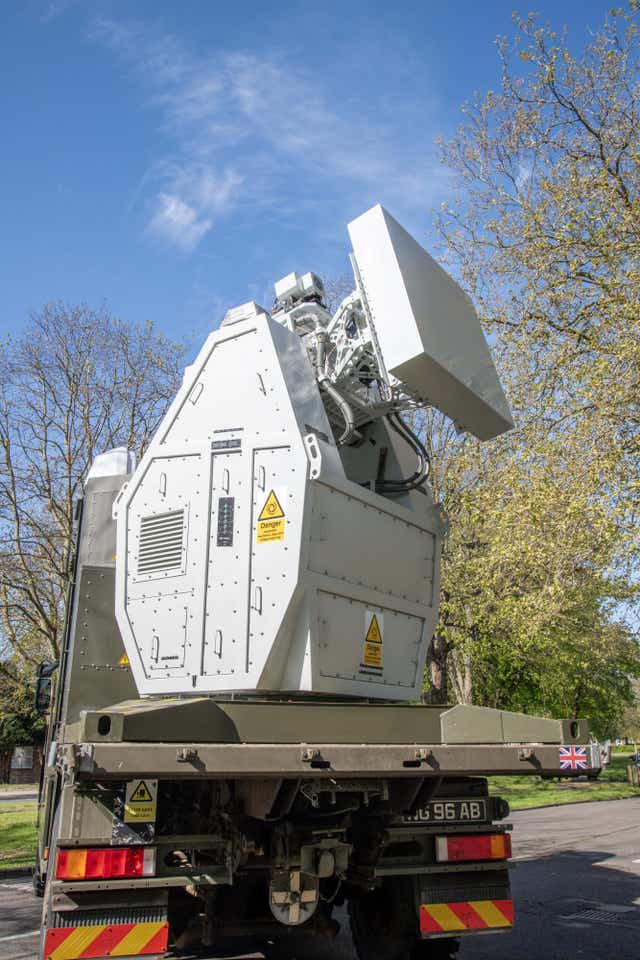
Ian Payne 4am - 7am
16 May 2024, 00:04

With an estimated cost of 10p per radio wave shot, the technology is also being billed as a cost-effective alternative to traditional missiles.
A cutting-edge new weapon which uses radio waves to blast drones out of the sky is under development for the UK’s armed forces.
The Radio Frequency Directed Energy Weapon (RFDEW) beams radio waves to disrupt or damage the critical electronic components of vehicles and drones used by enemy combatants, which can cause them to stop in their tracks or fall out of the sky.
It can be used across land, air and sea and has a range of up to 1km, which could be extended in the future.
Release of information about the new weapon comes after Prime Minister Rishi Sunak promised to hike UK defence spending to 2.5% of gross domestic product (GDP) by 2030.

With an estimated cost of 10p per radio wave shot, the technology is also being billed as a cost-effective alternative to traditional missiles, and could be used to take down dangerous drone swarms.
The technology can be mounted on to a variety of military vehicles, and uses a mobile power source to produce pulses of a radio frequency energy in a beam that can fire sequenced shots at a single target or be broadened to hit a series of targets.
Minister for defence procurement James Cartlidge said: “We are already a force to be reckoned with on science and technology, and developments like RFDEW not only make our personnel more lethal and better protected on the battlefield, but also keep the UK a world leader on innovative military kit.
“The war in Ukraine has shown us the importance of deploying uncrewed systems, but we must be able to defend against them too. As we ramp up our defence spending in the coming years, our Defence Drone Strategy will ensure we are at the forefront of this warfighting evolution.”
The new weapons system will undergo extensive testing with British soldiers over the summer.
It is being developed by a joint team from the Defence Science and Technology Laboratory (DSTL) and Defence Equipment & Support (DE&S), working with UK industry under Project Hersa.
DSTL chief executive Paul Hollinshead said: “These game-changing systems will deliver decisive operational advantage to the UK armed forces, saving lives and defeating deadly threats.
“World-class capabilities such as this are only possible because of decades of research, expertise and investment in science and technology at DSTL and our partners in UK industry.”